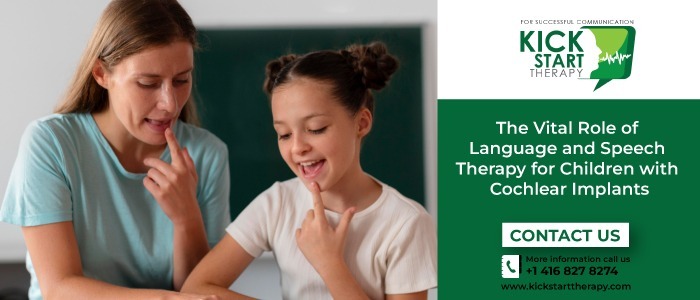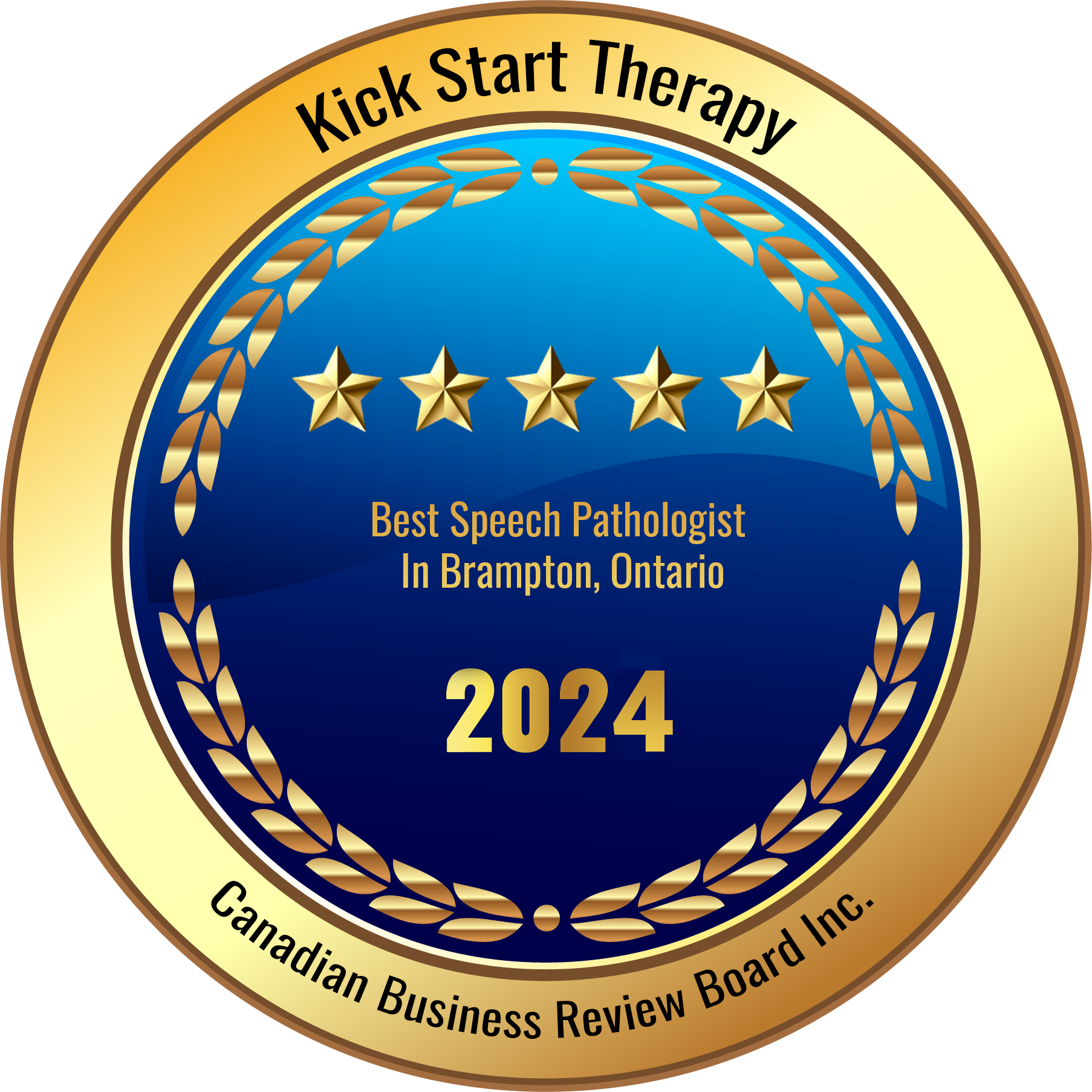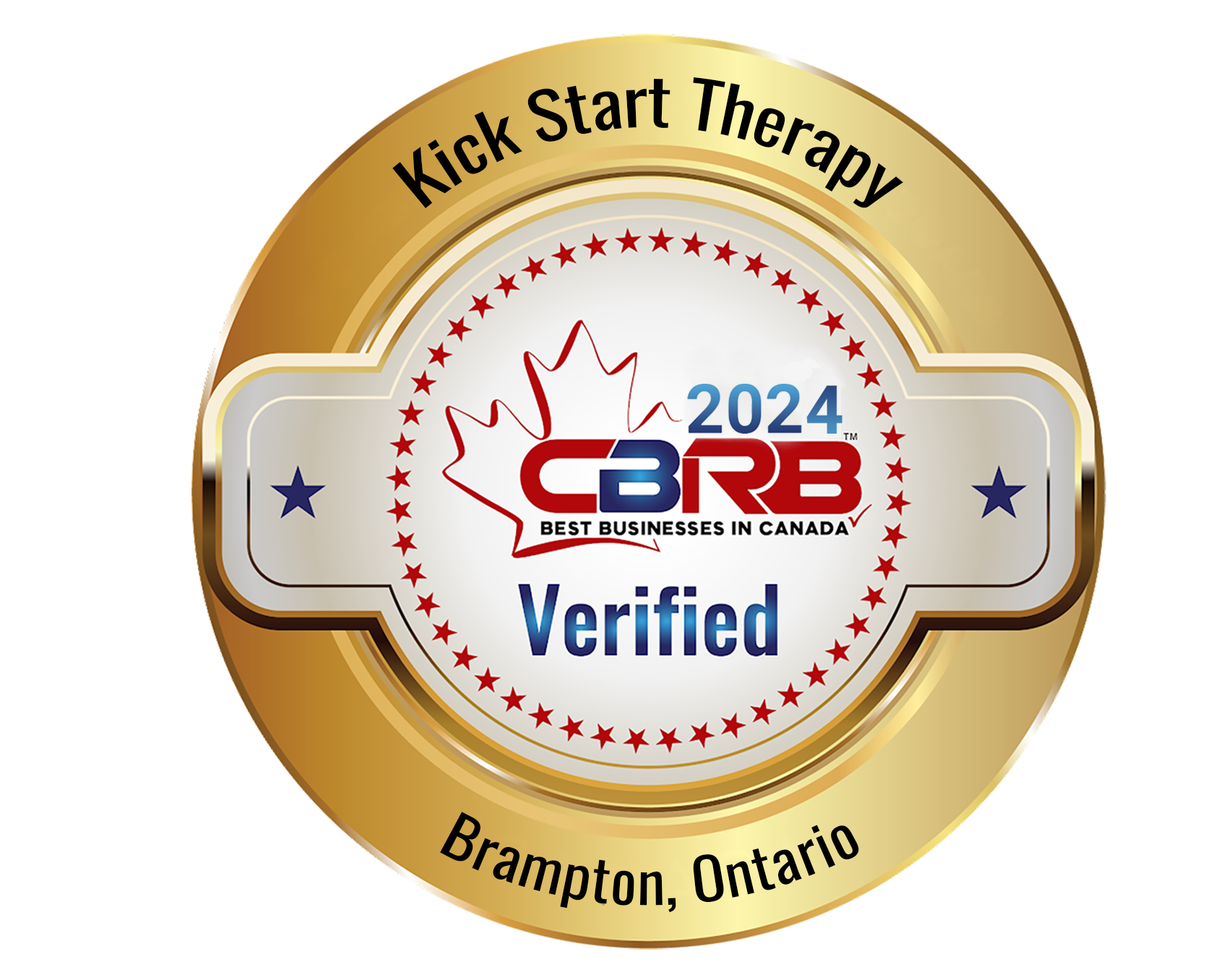
Cochlear implants have revolutionized the world of auditory rehabilitation for individuals with severe hearing loss or deafness. These remarkable devices provide individuals with access to sound, allowing them to develop spoken language skills.
However, the journey towards effective communication does not end with the implantation surgery. Language and speech therapy is crucial in optimizing the benefits of cochlear implants for children.
We will explore the significance of language and speech therapy and how KickStart Therapy helps children with cochlear implants achieve their full potential.
Cochlear implants are electronic devices that directly stimulate the auditory nerve, bypassing damaged or non-functional parts of the inner ear. The implant comes with the presence of an external sound processor and an internal component surgically placed under the skin. This innovative technology enables individuals with severe hearing loss to perceive sound and speech, facilitating the development of auditory skills.
Language is the cornerstone of communication and is vital to a child's overall development. Language development may present unique challenges for children with cochlear implants due to their late exposure to auditory input. Language and speech therapy aims to bridge this gap and facilitate the acquisition of spoken language skills.
Early intervention is critical for maximizing the benefits of cochlear implants and fostering optimal language development. Language and speech therapy should ideally begin as soon as possible after implantation. Our therapy focuses on stimulating auditory skills, promoting listening, and teaching children to recognize and interpret speech sounds.
Language and speech therapy for children with cochlear implants emphasizes auditory training. This training involves exercises and activities to enhance the child's ability to perceive and discriminate sounds, ranging from basic environmental sounds to complex speech sounds. Auditory training helps the child develop critical listening skills, improving their ability to understand speech and participate in conversations.
In addition to auditory training, language and speech therapy also addresses speech production skills. Children with cochlear implants may need assistance articulating speech sounds correctly, modulating their voice, and improving overall speech clarity. Speech therapy helps them refine their speech production skills and develop age-appropriate speech intelligibility.
Language and speech therapy aims to expand a child's vocabulary and develop their language skills. Therapists work with children to build their understanding of words, concepts, and sentence structures. Children with cochlear implants learn to comprehend and use language effectively through engaging activities, games, and interactions.
One specialized approach within language and speech therapy for children with cochlear implants is Auditory-Verbal Therapy (AVT). AVT focuses on teaching children to use their hearing effectively, relying on audition as the primary mode of communication. It develops listening and spoken language skills without relying on visual cues such as lip-reading or sign language. AVT empowers children to communicate and integrate into mainstream educational and social environments.
The involvement of parents and caregivers is vital for the success of language and speech therapy. The presence of parents is imperative in supporting their child's language development, reinforcing therapy goals, and providing a language-rich environment at home. Therapists often collaborate closely with parents, providing guidance, strategies, and resources to facilitate effective communication and language growth.
Language and speech therapy also extends to educational settings, where therapists collaborate with teachers and educators to ensure consistent language support. This collaboration includes strategies for enhancing listening skills in the classroom, optimizing communication access, and adapting instructional materials to meet the child's unique needs.
Language and speech therapy is essential to comprehensive care for children with cochlear implants. It is vital in facilitating optimal language development, improving auditory skills, and promoting effective communication. Through auditory training, speech production exercises, vocabulary building, and parental involvement, children with cochlear implants can unlock their full potential and participate fully in spoken language. With the combined efforts of cochlear implant technology and language and speech therapy, children with hearing loss can embrace a world of sound and achieve success in social, personal and academic areas.






